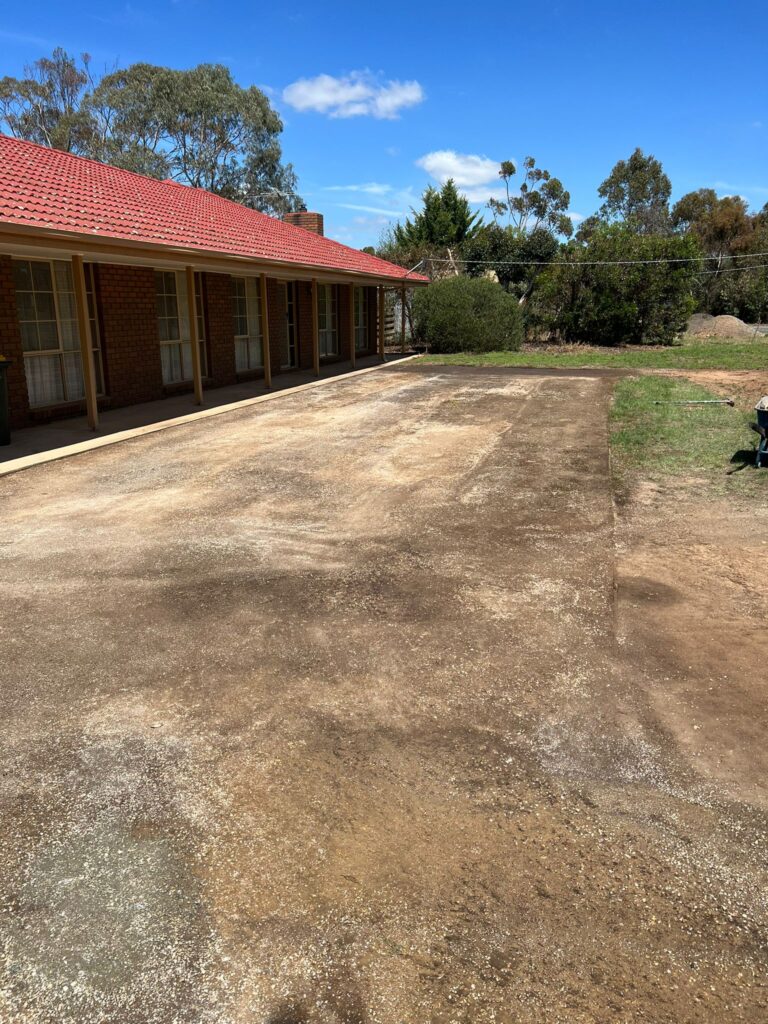Driveways made from asphalt or spray seal bitumen offer excellent durability, but like all surfaces, they eventually show signs of wear. One of the most effective ways to prolong the lifespan of your driveway is through resealing. At Victor Harbour Road Tech SA in Victor Harbour, SA, we often get asked: how do you know when it’s time to reseal your driveway?
Understanding the signs and timing of resealing can help protect your investment, maintain a polished appearance, and reduce the need for costly repairs later.
Why Resealing Matters
Sealing an asphalt or bitumen driveway protects it from:
- Water infiltration
- UV rays that dry out the binder
- Oil and chemical spills
- General wear and tear
Without a good seal, surfaces become brittle, crack, and eventually allow moisture to penetrate, leading to potholes and base failure.
Typical Resealing Timeline
The standard recommendation for resealing a driveway is every 3–5 years. However, this depends on:
- The quality of the original installation
- Traffic volume and load
- Exposure to sunlight and water
- Previous maintenance history
High-use or poorly drained areas may need more frequent resealing than a low-traffic residential driveway.
Visible Signs It’s Time to Reseal
If you’re unsure whether it’s time to reseal, here are some clear signs to look out for:
Surface Looks Dry and Faded
A healthy driveway surface should have a rich black or dark finish. If your driveway is starting to look grey, patchy, or chalky, the surface layer is likely breaking down under UV exposure.
Hairline Cracks Are Forming
Tiny cracks may seem harmless, but they can expand rapidly. Resealing fills in these early gaps, preventing water from entering and causing further damage.
Water Is No Longer Beading on the Surface
When sealed properly, water should bead and run off easily. If water soaks into the surface instead, the protective layer has likely worn away.
You Notice Potholes or Loose Aggregate
Potholes or bits of stone coming loose from the surface are late-stage signs that sealing has been neglected. Resealing can slow further damage, but surface repairs might also be needed.
Oil or Chemical Stains Absorb Into the Surface
If spills are quickly absorbed rather than sitting on the surface, the seal coat is no longer doing its job of protecting the asphalt or bitumen below.
Seasonal Considerations
The best time to reseal is during warm, dry weather—typically from spring to early autumn in Victor Harbour. Resealing requires time to cure, so avoiding rain and cool temperatures is essential for a strong bond.
Don’t Wait Too Long
Waiting until your driveway is already cracking or potholing means you may need a full resurface or base repair. Resealing is a preventative measure and should be done before major damage appears.
Benefits of Timely Resealing
- Extends the lifespan of your driveway
- Maintains a clean, fresh appearance
- Reduces repair costs over time
- Protects against environmental damage
- Boosts kerb appeal for residential or commercial properties
At Victor Harbour Road Tech SA in Victor Harbour, SA, we guide property owners through every stage of surface maintenance, including professional resealing tailored to your driveway’s condition and usage.
Conclusion
Knowing when to reseal your driveway is about more than just marking a calendar. Look for fading colour, cracks, water absorption, and signs of wear as indicators. Timely resealing ensures your surface performs well for years to come, saving you money and stress in the long run. For reliable advice and high-quality asphalt and bitumen surface care in Victor Harbour, contact Victor Harbour Road Tech SA today.
Call us on: 08 6727 9106
Click here to find out more about Victor Harbour Road Tech SA
Click here to complete our contact form and see how we can help with your Asphalt and Bitumen Surfacing needs.

